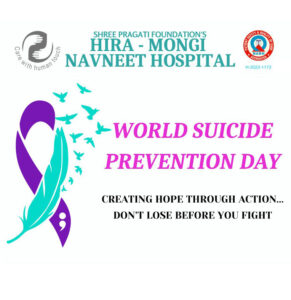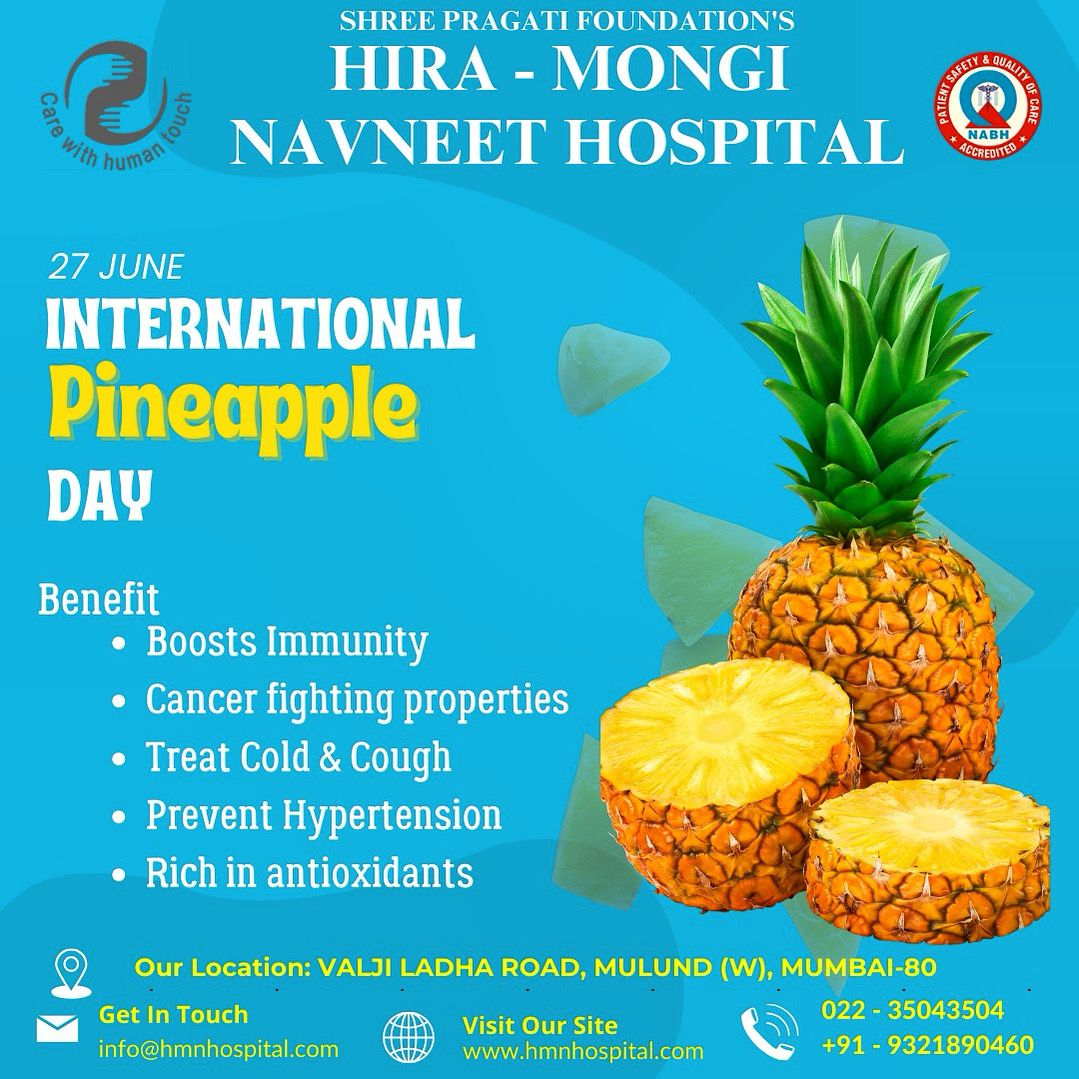Suicide Prevention: Creating Hope through Action
 Suicide is a public health concern. Each suicide is a personal tragedy that takes life of an individual, affecting the lives of those who are near and dear to them. Every year more than 1,00,000 people commit suicide in our country.
Suicide is a public health concern. Each suicide is a personal tragedy that takes life of an individual, affecting the lives of those who are near and dear to them. Every year more than 1,00,000 people commit suicide in our country.
According to N.C.R.B, a total of 1,64,033 suicides were reported during 2021 showing an increase of 7.2% in comparison to 2020 and the rate of suicides has increased by 6.2% during 2021 over 2020. These numbers represent immeasurable tragic losses to human life, friends, family and society.
Few Common Causes:
- Professional / Career Problems
- Abuse
- Violation
- Family Problems
- Sense of Isolation
- Financial Loss
- Disorder
- Chronic Pain
- Addiction, Etc.
Risk factors related to suicide:
- Previous attempt- the leading suicide risk factor is a prior suicide attempt
- Triggers- These can include a wide range of significant events, especially relationship
problems and unemployment. Additionally, a history of child abuse,
including bullying or sexual abuse, traumatic brain injury, chronic pain and
chronic health conditions may heighten suicide risk. - Mental illness- It is estimated that almost 90% of people who die by suicide
have mental illness. The main reasons are due to anxiety, depression, - Substance abuse- people who are dependent on alcohol or drugs have 10-14
times greater suicide risk than the general population. Addiction is one of the
main causes of suicide. - Impulsivity- study found that a lot of suicide attempts were impulsive,
which explains why people who attempt suicide make the decision to do so
within minutes to an hour before they act.
Early signs that someone may be at risk for suicide:
- Increased anxiety, agitation, or irritability
- Social withdrawal, isolation, or a decline in peer or family relationships
- Hopelessness or feelings of being trapped or stuck
- Difficulty concentrating, making decisions, or thinking clearly
- Neglecting personal hygiene and appearance
- Changes in sleeping or eating habits
- Talking about suicide, death, or self-harm, either directly or indirectly (e.g., saying goodbye to loved ones, giving away belongings)
- Sudden mood changes or extreme shifts in behavior
- Expressing a sense of despair or being a burden to others
- Engaging in risky or destructive behaviors, such as substance abuse or unprotected sex.
It’s important to remember that these signs do not always indicate that someone is actively suicidal, but they may indicate that they are struggling with mental health issues or overwhelming life stressors. If you notice any of these signs in someone you care about, it’s crucial to stay supportive and non-judgmental, and encourage them to seek help from a mental health professional or a crisis line.
Protective factors for suicide:
- Strong social support and positive relationship with family, friends and colleagues
- Access to mental health and medical care
- Effective coping skills and problem-solving abilities
- A sense of purpose and meaning
- Supportive community and religious/cultural affiliations
- Reduced exposure to stressful life events, such as bullying, abuse and trauma
- Hope and optimism about the future
- Restriction of access to lethal means (pills, sharp objects, etc.)
- Stable living conditions and financial security
- Good physical health and regular exercise
If you or someone you know is experiencing a mental health, suicide or substance use crisis or emotional distress, reach out to Indian Suicide Prevention Lifeline 9820466726 or emergency number 112. You can also take a depression test at screening.mhanational.org or chat online at suicidestop.com


